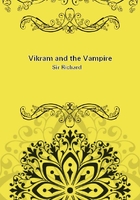
第26章
One day the prince said, "Parrot, thou knowest everything: tell me where there is a mate fit for me. The shastras inform us, respecting the choice of a wife, 'She who is not descended from his paternal or maternal ancestors within the sixth degree is eligible by a high caste man for nuptials. In taking a wife let him studiously avoid the following families, be they ever so great, or ever so rich in kine, goats, sheep, gold, or grain: the family which has omitted prescribed acts of devotion; that which has produced no male children; that in which the Veda (scripture) has not been read; that which has thick hair on the body; and that in which members have been subject to hereditary disease. Let a person choose for his wife a girl whose person has no defect; who has an agreeable name;who walks gracefully, like a young elephant; whose hair and teeth are moderate in quantity and in size; and whose body is of exquisite softness.'""Great king," responded the parrot Churaman, "there is in the country of Magadh a Raja, Magadheshwar by name, and he has a daughter called Chandravati. You will marry her; she is very learned, and, what is better far, very fait. She is of yellow colour, with a nose like the flower of the sesamum; her legs are taper, like the plantain-tree; her eyes are large, like the principal leaf of the lotus; her eye-brows stretch towards her ears; her lips are red, like the young leaves of the mango-tree; her face is like the full moon;her voice is like the sound of the cuckoo; her arms reach to her knees; her throat is like the pigeon's; her flanks are thin, like those of the lion; her hair hangs in curls only down to her waist; her teeth are like the seeds of the pomegranate; and her gait is that of the drunken elephant or the goose."On hearing the parrot's speech, the king sent for an astrologer, and asked him, "Whom shall I marry?" The wise man, having consulted his art, replied, "Chandravati is the name of the maiden, and your marriage with her will certainly take place." Thereupon the young Raja, though he had never seen his future queen, became incontinently enamoured of her. He summoned a Brahman, and sent him to King Magadheshwar, saying, "If you arrange satisfactorily this affair of our marriage we will reward you amply"-a promise which lent wings to the priest.
Now it so happened that this talented and beautiful princess had a jay, whose name was Madan-manjari or Love-garland.
She also possessed encyclopaedic knowledge after her degree, and, like the parrot, she spoke excellent Sanscrit.
Be it briefly said, O warrior king-for you think that I am talking fables--that in the days of old, men had the art of making birds discourse in human language. The invention is attributed to a great philosopher, who split their tongues, and after many generations produced a selected race born with those members split. He altered the shapes of their skulls by fixing ligatures behind the occiput, which caused the sinciput to protrude, their eyes to become prominent, and their brains to master the art of expressing thoughts in words.
But this wonderful discovery, like those of great philosophers generally, had in it a terrible practical flaw The birds beginning to speak, spoke wisely and so well, they told the truth so persistently, they rebuked their brethren of the featherless skins so openly, they flattered them so little and they counselled them so much, that mankind presently grew tired of hearing them discourse. Thus the art gradually fell into desuetude, and now it is numbered with the things that were.
One day the charming Princess Chandravati was sitting in confidential conversation with her jay. The dialogue was not remarkable, for maidens in all ages seldom consult their confidantes or speculate upon the secrets of futurity, or ask to have dreams interpreted, except upon one subject. At last the princess said, for perhaps the hundredth time that month, "Where, O jay, is there a husband worthy of me?""Princess," replied Madan-manjari, "I am happy at length to be able as willing to satisfy your just curiosity. For just it is, though the delicacy of our sex --""Now, no preaching!" said the maiden; "or thou shalt have salt instead of sugar for supper."Jays, your Rajaship, are fond of sugar. So the confidante retained a quantity of good advice which she was about to produce, and replied, "I now see clearly the ways of Fortune. Raja Ram, king of Bhogavati, is to be thy husband. He shall be happy in thee and thou in him, for he is young and handsome, rich and generous, good-tempered, not too clever, and without a chance of being an invalid."Thereupon the princess, although she had never seen her future husband, at once began to love him. In fact, though neither had set eyes upon the other, both were mutually in love.
"How can that be, sire?" asked the young Dharma Dhwaj of his father. " I always thought that --"The great Vikram interrupted his son, and bade him not to ask silly questions. Thus he expected to neutralize the evil effects of the Baital's doctrine touching the amiability of parents unlike himself.